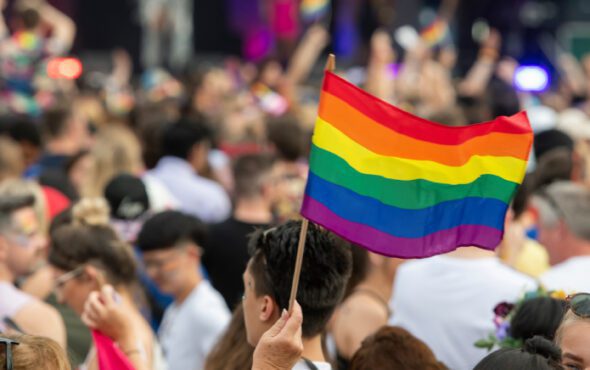
The vast majority of LGBTQ+ people believe it is ‘very important’ to have representation in politics, a joint survey from GAY TIMES and Channel 4 News has found.
The number of openly LGBTQ+ Members of Parliament in the UK reached a record high after the December 2019 general election, with representation remaining steady across the political spectrum since then.
More than 8 in 10 (82%) believe this level of visibility to be an important thing, with 16% viewing the issue of ‘average importance’ and the remaining 2% (just 45 respondents) viewing it as ‘not important’ at all.
The findings come as the Conservative Party’s leadership race gets in full swing, with a number of the candidates having poor track records in relation to LGBTQ+ rights.
Debates about self-ID and the Gender Recognition Act (GRA) have taken centre stage in many aspects, especially in relation to Penny Mordaunt’s views on self-identification for trans and non-binary people.
Although she has confirmed that she “never supported self-ID” during her time as Equalities Minister, reforming the GRA was also found to be popular among those who took the GAY TIMES and Channel 4 News survey.
80% felt it was ‘very important’ to do so, with the matter being of ‘average importance’ to 5% and ‘not important’ to 2%.
Support for trans rights more generally was found to be ‘very important’ to 93% of those who took the survey, of ‘average importance’ to 5% and ‘not important’ to only 2%.
In September 2020, the UK government published the results of a public consultation which found there to be widespread support for all aspects of reforming the GRA – including 80% being in favour of scrapping the requirement for a medical report and 64% supporting the removal of a diagnosis of gender dysphoria.
Despite this, plans to implement reforms making it easier for trans people in England and Wales to change their legal gender were recently ditched by the Tory government.
There were a total of 2,237 GAY TIMES readers surveyed as part of the research, with most being aged 13 to 24 years.



